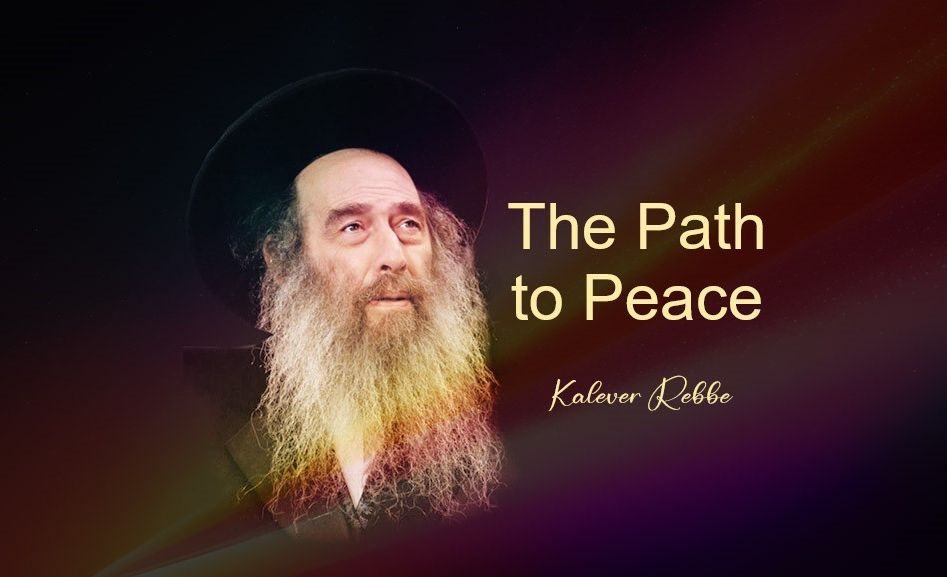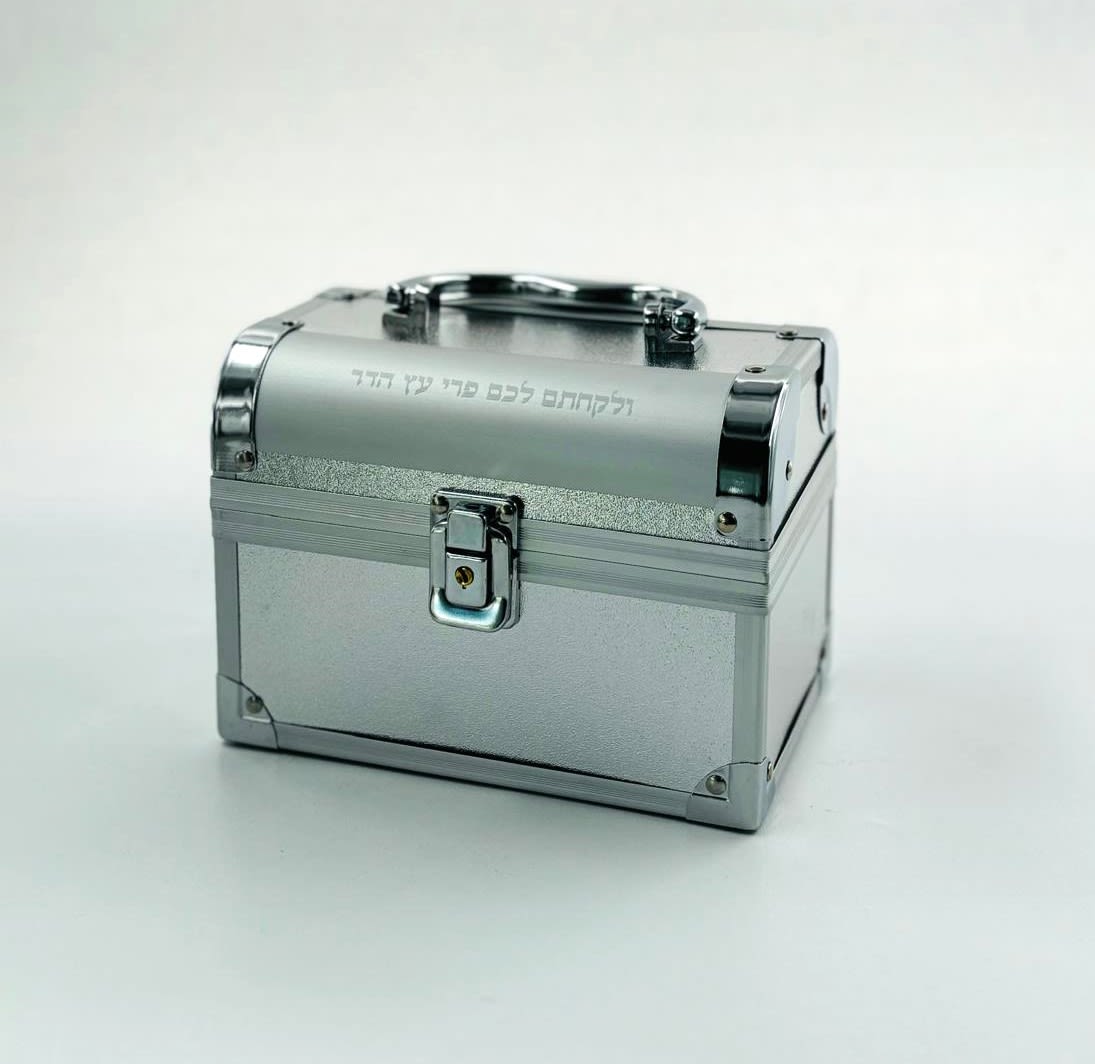
The Spiritual Triangle
We want to rejoice in the Succot holiday and stay on the spiritual high of the Ten Days of Repentance. If only people would stop getting in our way...

He described it as a triangle – we can determine the strength of our relationship to God through the intensity of how we observe the commandment of “v’ahavta l’reyecha k’mocha,” of loving our fellow Jew.
I once attended a lecture where the rabbi pointed out that our relationship with our fellow Jews is a barometer of our relationship with the Almighty. He described it as a triangle – we can determine the strength of our relationship to God through the intensity of how we observe the commandment of “v’ahavta l’reyecha k’mocha,” of loving our fellow Jew. Or, to quote a Yiddish saying “dein gashmiyus iz mein ruchniyos,” “Your material needs (in other words, taking care of another person’s material needs) are my spirituality.”
We’ve just completed the intensely spiritual holiday of Yom Kippur. During those last few minutes, as the gates of repentance were about to close, the layers of haughtiness and jealousy were eradicated as we were overwhelmed with the realization of the opportunity that was about to slip through our fingers. We resolved to change – to remain focused on the important values of life and attach ourselves to the Almighty.
But then, it’s Erev Sukkot! The house has to be cleaned, the food has to be cooked, the succah (temporary outside dwelling during the Sukkot holiday) has to be built, and then, to top it all off, with all those hadasim (myrtle twigs) and aravot (willow twigs) crowding the refrigerators, there’s barely enough room for all the food we’ve prepared! We want to rejoice in our holiday; we want to remain connected, to stay on a spiritual high – if only all those, uh, people (mainly relatives) would stop getting in the way.
But ladies and gentlemen, this is it! All our wonderful resolutions for change, for becoming who we really would like to be (if only…) is being put to the test! It isn’t easy (no one ever said it would be) and, to tell you the truth, it’s downright difficult. But the verdict is not yet sealed. We have a chance to really prove ourselves, to show Hashem that we mean business, before the books are finally sealed on Hoshana Rabba. And if we succeed, well, I guess we’ll really have something to dance about.
Here’s a very beautiful story that illustrates the heights we can attain through our love of another Jew:
It was impossible not to notice the man snoring away in the corner of the synagogue. His clothes were soiled and he reeked of alcohol. The members of the shul were appalled! How could a Jew get to such a state – and on Erev Yom Kippur?
As the sun started to dip below the horizon, a hush descended upon the crowd. The Rebbe entered the room and made his way to his place at the eastern wall. The ark was opened and the gabbai (synagogue caretaker) began taking out the Torah scrolls in preparation for the Kol Nidrei (All Vows) service.
The drunk chose just that moment to wake up. He climbed up the steps of the bima (lecturn), pounded on the table and announced, “Ne’um attah horeita!” He thought they were beginning the hakafot (round of dancing) on Simchat Torah!
The scandalized crowd was about to throw the man out of shul when the Rebbe said: “Let him be. For him, it’s already time for hakafot. He’s there already.”
The following evening, when the Rebbe sat with his Chassidim for the festive meal that follows the fast, he told the Chassidim the story of Reb Shmuel, the Kol Nidrei drunk.
On the morning of the eve of the Holy Day, Reb Shmuel heard that the local nobleman had thrown a Jew, together with his wife and six small children, into prison for failing to pay the rent. Reb Shmuel went to the nobleman to plead for their release, but the nobleman refused. “Until I see every penny that is owed to me,” he swore, “the Jew and his family will stay where they are. Now get out of here before I unleash my dogs on you.”
Reb Shmuel could not bear the thought of a Jewish family spending Yom Kippur in the dungeon. He decided to raise the money for their rent.
Reb Shmuel spent the entire Erev Yom Kippur going from door to door collecting money. Although everyone gave generously, by late afternoon he was still 300 rubles short. Where would he find such a large sum of money right before Yom Tov? Then he passed a tavern and saw a group of well-dressed young men playing cards. He noticed that there was a sizable pile of banknotes and gold and silver coins on the table.
Reb Shmuel hesitated. What could he expect from Jews who spend the eve of the most holy day of the entire year engaged in such vain pursuits? But then he thought of the poor family spending the holiday in prison and realized that he had no choice. He walked over to where they were sitting and told them the family’s plight.
They were about to send him off empty-handed, when one of them said, “Wouldn’t it be great fun to get a pious Jew drunk on Yom Kippur?” Signaling to the waiter, the man ordered a half-liter glass of vodka. “Drink this down in one gulp,” he said to the Reb Shmuel, “and I’ll give you 100 rubles.”
Reb Shmuel looked from the glass that had been set before him to the sheaf of banknotes that the man held under his nose. Other than a sip of l’chayim (to life) on Shabbat and at weddings, Reb Shmuel never drank except on Purim, when it’s a mitzvah to get drunk. But Reb Shmuel was determined to help his fellow Jew. He drank the entire glass.
“Bravo!” cried the man, and handed him the 100 rubles. “But this is not enough,” said Reb Shmuel, his head already reeling from the strong drink. “I need another 200 rubles to get the poor family out of prison!”
“A deal’s a deal!” cried the merrymakers. “We’ll give you one hundred rubles per glass! Waiter! Please refill this glass for our drinking buddy!”
One liter and two hundred rubles later, Reb Shmuel staggered out of the tavern. His alcohol-fogged mind was oblivious to all — the stares of his fellow villagers rushing about in their final preparations for the Holy Day, the ferocious barking of the nobleman’s dogs, the joyous tears and profusions of gratitude of the ransomed family. It took everything he had to deliver the money to the nobleman and find his way to the synagogue. He realized that if he would return home to eat before the fast, he would never make it to shul for Kol Nidrei.
“On Rosh Hashanah,” the Rebbe concluded his story, “we submitted to the sovereignty of Heaven and proclaimed that God is King of the universe. Today, we fasted, prayed, and repented, laboring to translate our commitment to God into a refined past and an improved future. Now we are heading towards Succot, in which we actualize and rejoice over the attainments of the ‘Days of Awe’ through the special mitzvot of the festival — a joy that reaches its climax in the hakafot of Simchat Torah. But Reb Shmuel is already there. When he announced the hakafot at Kol Nidrei last night, this was no ‘mistake.’ For us, Yom Kippur was just beginning; for him, it was already Simchat Torah…










Tell us what you think!
Thank you for your comment!
It will be published after approval by the Editor.